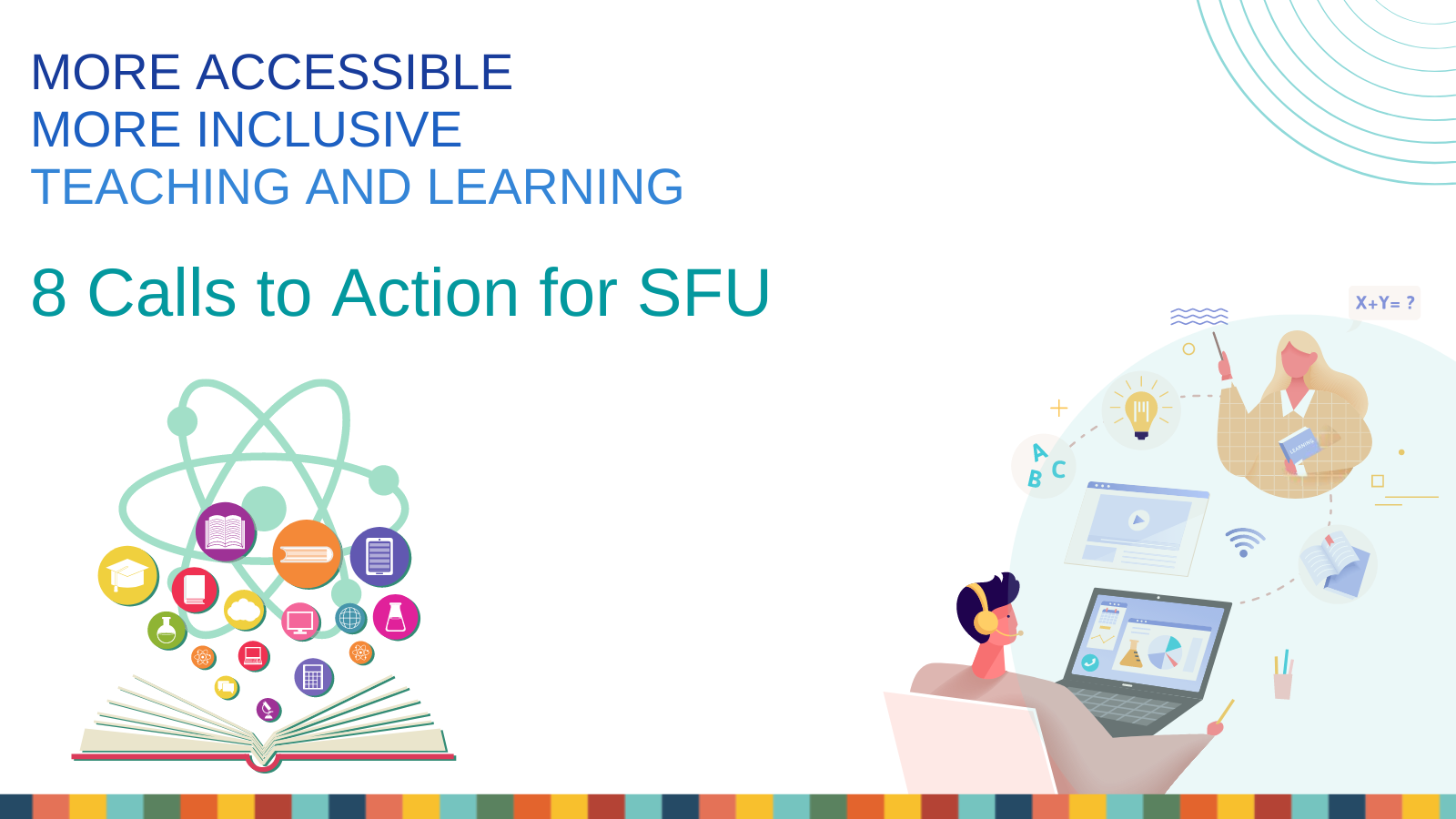
The SFSS Joins TSSU & SFUFA Calling For Accessible Course Practices at SFU
April 5, 2022
The SFSS, SFUFA and TSSU are adding their voices to the growing chorus of students, faculty, staff and various students’ groups urging SFU to provide more support and resources for accessible course practices.
A joint statement released on February 22nd, and signed by the SFSS along with the SFU Faculty Association and Teaching Support Staff Union, invited the University to meet to discuss ways to “ resource diverse learning environments with creativity, flexibility, and care” emphasising that any sustainable efforts made towards accessible and flexible learning options hinges on a close collaboration with faculty, staff and students. SFU has yet to agree to meet and discuss the important role of students and of the Students’ Society in fostering greater inclusion and equity to improve student learning. Students’ accessibility needs vary and are complex. It can be long term, temporary, remitting or relapsing. For some, accessibility needs may be a source of stigma or shame and for others, it can be a cherished part of self-identity and a meaningful way to create community. That is why the SFSS, TSSU and SFUFA is calling upon the university to create more accessible and inclusive higher education teaching and learning practices that goes beyond traditional accommodation.
The SFSS joins TSSU and SFUFA in calling the University to commit to:
Education still remains instrumental in an individual’s personal, economic and social development and “the SFSS has long advocated for accessible course options for students since at least the start of the pandemic. We believe it is important for students to be given a choice on how their education is delivered in order to meet their individual needs. We also believe that when course delivery is offered with the most marginalised at the centre, everyone wins” added Corbett Gildersleve, Acting President- SFSS.
Despite SFU’s commitment to achieving an equitable, diverse and supportive environment for teaching and learning characterised by fairness and mutual respect, students still face obstacles in terms of accessible educational services. And in this digital age where technology is becoming an integral part of our lives, SFU’s response that its teaching, learning and work environment’s objectives are primarily achieved through on-campus teaching and learning is outdated and not forward looking. But while the Faculty Association and the Teaching Support Staff Union both responded to student concerns by meeting with the SFSS to identify shared principles and areas of common interest, the University simply has largely evaded our request for a meeting, saying “We recommend that you use established meetings and consultations for discussions of these matters” when in fact the SFSS has no such established protocol for consultation.
According to the Accessible Course Practice (ACP) working group, “It’s discouraging to see that though SFU claims to be an engaged university, little is actually being done to engage the student population in making decisions about teaching/learning models. We believe that the first step towards collaborating on achieving a hybrid learning model is engaging in conversations, to which no actions have yet been taken by the institution”. Additionally, in response to the university arguing that “while there are collective interests, there are also matters specific to individual groups…”, the working group wanted to clarify that the needs of the faculty, students, and the teaching staff are not in opposition to one another, and these memberships have come together to share perspective and identify common interests with regard to teaching and learning. Making teaching and learning accessible to all requires the collaborative efforts of students, faculty and teaching staff as this helps to improve engagement, participation, open communication and shared goals rather than having them operate as isolated silos with different and irreconcilable interests.
As such, the SFSS calls on SFU to review the recommendations proposed in the joint letter, make a public commitment to implement them and take active and immediate steps towards ensuring that all students are able to access education with dignity and without any impediments.